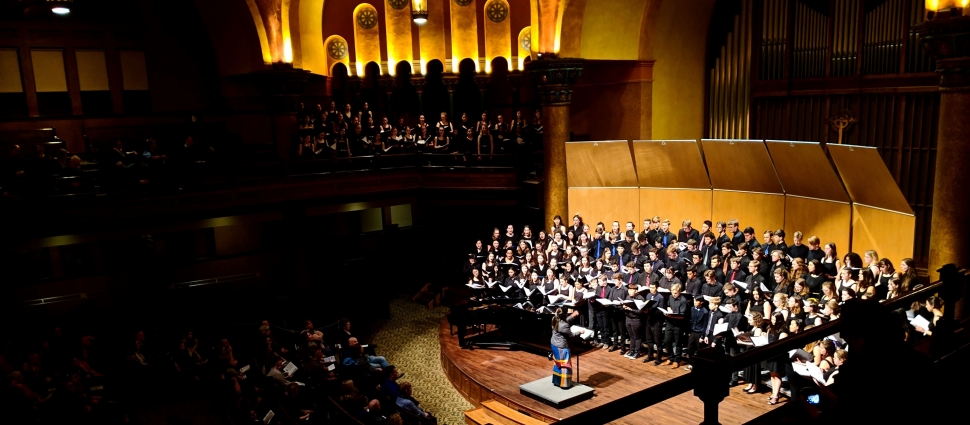Music at the GA and the PCA

Does the PCA in general understand the role of music in the worship of the Reformed Church? The answer must be no if our annual experience at the General Assembly gives any indication. What the Reformation revived was the congregational singing of the patristic church. The medieval church had musical instruments and choirs. They provided the music. Congregations sat mute as the “professionals’ performed. The Reformers rightly restored the singing of the congregation whether hymns (Lutherans) or psalms (Reformed) as one of five essential elements in the ordinary worship of the church. It was elevated to this place of prominence along with the reading and preaching of Scripture, prayer, and the administration of the sacraments. Congregational singing even takes on confessional status in the Westminster standards (WCF XXI.5; Directory for the Public Worship of God, “Of Singing of Psalms).
Yet year in and year out we assemble, 3000 strong, only to have the musicians, vocalists, and choirs overwhelm the gathered congregation. Once again, this year, most of the time in our official services it was impossible to hear one’s own voice, never mind those of the surrounding multitude. The high level of skill and prodigious efforts made by all of the performers is obvious. Their proper function, less so.
What is the role of musicians, vocalists, and choirs in the Reformed church? Simply this: To support the divinely-authorized element of congregational singing. Support, not overwhelm; support, not usurp; support, not entertain; support, not drown out; and especially, support and not discourage by making the singing of the congregation superfluous. Musicians, vocalists, and choirs have a secondary role, a subordinate role, not even a necessary role (we can sing acapella), what ideally should be a hidden role. They are there to support, encourage, and beautify the singing of the congregation.
Recognizing that congregational singing is the divinely authorized element also should determine song selection. There are songs that trained choirs can sing that are too difficult for congregations. There are songs with irregular rhythms and other characteristics easily managed by soloists that confuse congregations. The hymns and psalms selected should be those that congregations know or can easily learn, ideally selected from the denominationally authorized sources, Trinity Hymnal and Trinity Psalter (and therefore more likely to be familiar to the crowd at General Assembly), and of the sort that can be sung energetically.
The unaided human voice is the most beautiful of all musical instruments. Three-thousand voices raised in harmony in the worship of God can be deeply moving and powerfully affecting. This is as God intended it. One might dare to hope that the organizers of the General Assembly worship services might intend it as well.
Terry L. Johnson is the Senior Minister of The Independent Presbyterian Church of Savannah and author of The Case for Traditional Protestantism, Reformed Worship, and the trilogy, When Grace Comes Home, When Grace Transforms, and When Grace Comes Alive.
Photo by Omar Flores on Unsplash




